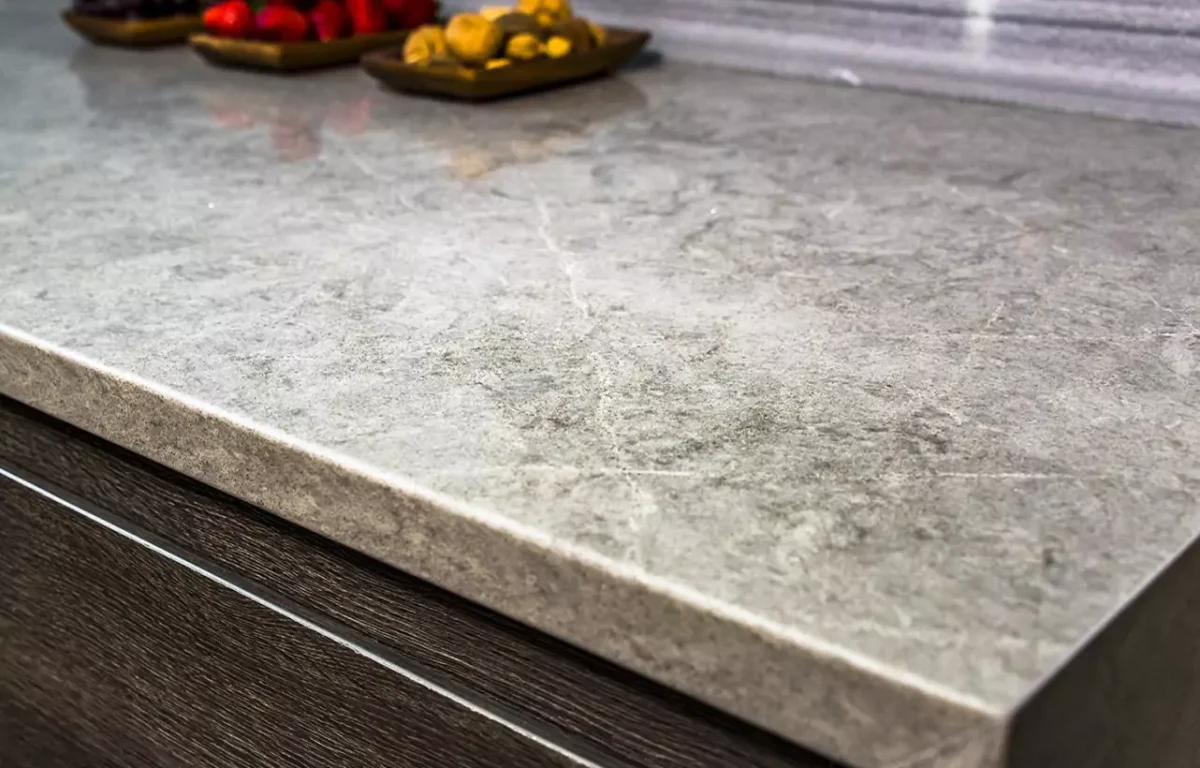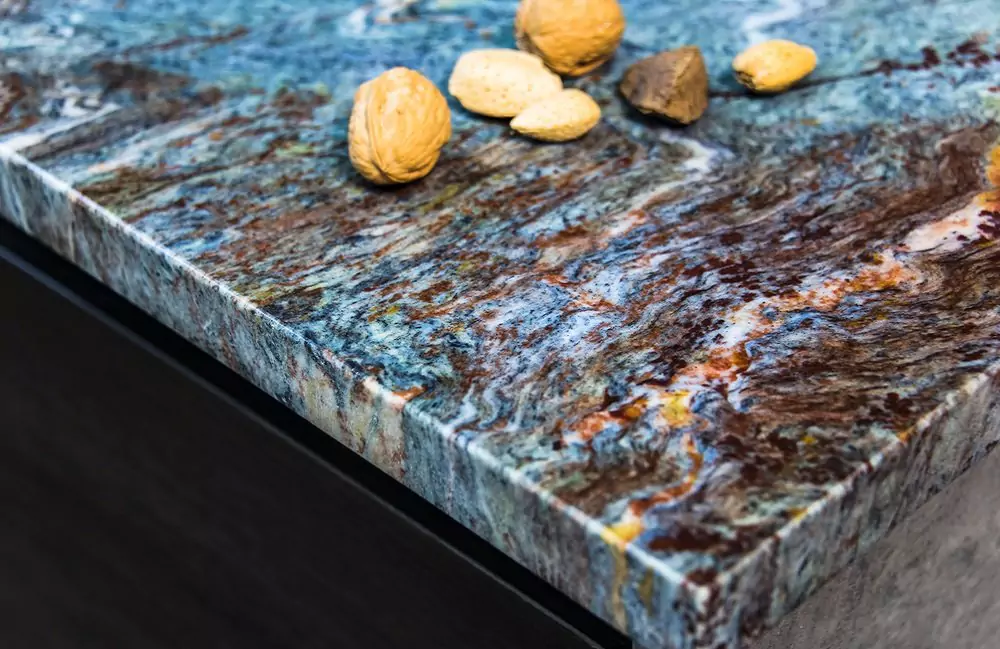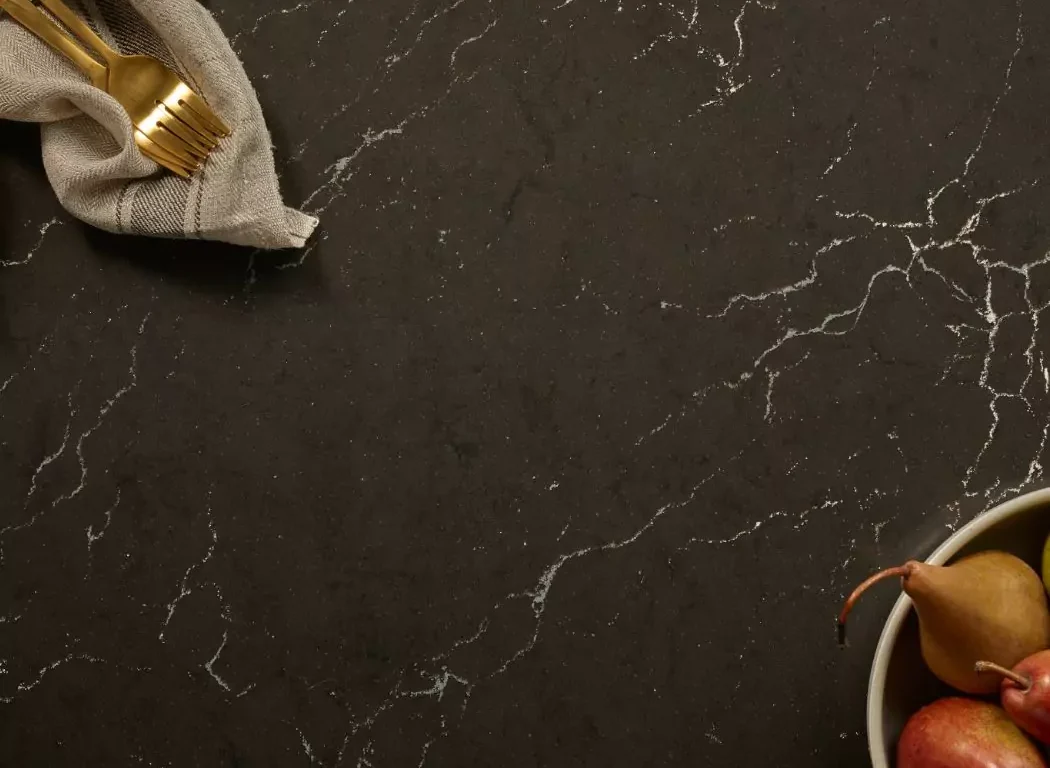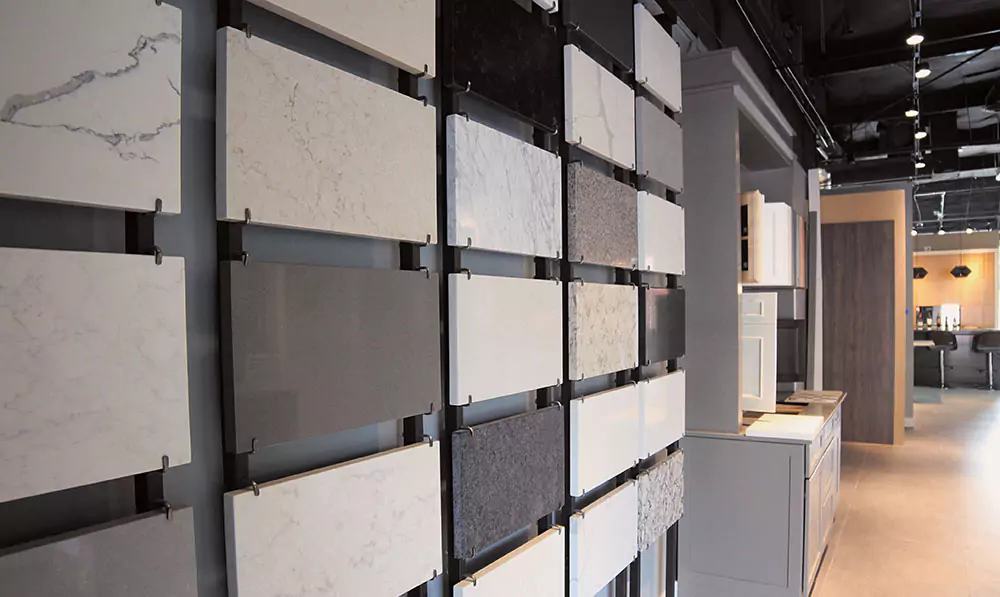Quartz vs Natural Stone
Natural stone countertops offer elegance and ease of maintenance over tile, laminate or wood, but they are not right for everyone. Although quartz has been on the market for many years and is one of the most relevant materials in modern home construction, there are still many people who don’t know the pros and cons of quartz countertops. Quarts manufacturers provide many styles of the countertop to fit a wide range of designs. Bright solid colors, pure white material, and particulate surfaces are all very popular as well as materials designed to mimic natural stones. How do you decide which is best for you? That depends on how you intend to use it.
Quartz countertops are non-porous, which not only resists staining but also inhibits bacterial growth. This can reduce the maintenance necessary by a considerable amount. Not only is regular cleaning easier, but no sealing is also required with quartz materials. Natural stone must be treated with a sealant and the frequency depends on the stone itself and how frequently it is being cleaned. Some colors, especially whites and light colors require yearly maintenance. There are some manufacturers producing sealant materials for quartz countertops to help protect against extreme situations such as food ingredients with heavy pigments including turmeric and paprika.
Quartz countertops are strong by comparison to natural stones which can have considerable variance due to natural imperfections. There is far less likelihood of cracks happening over time with quartz, provided the counter was fabricated properly. This is because there are no voids in the material to hold moisture or air as is the case with natural stone. Chipping is less prevalent as well and can be largely avoided with the proper edge detail.
Extreme heat is a liability with quartz countertops. The natural quartz crystal is held together with a binding agent, and that binding agent can discolor under extreme heat. Many natural stones have a higher overall tolerance for heat then man-made quartz countertops. Most people are not in the habit of setting hot pans directly on their countertops but if an accident happens it can leave lasting discoloration on the surface of the quartz. It is always recommended to use a trivet made of wood, silicone or ceramic material to protect your countertop from the heat. This is good advice even for natural stones as voids and fissures in the material can be damaged by rapid heating.
The beauty of the natural stone is often in its color variance. In kitchens that will require multiple seems in their countertop, this color variance can stand out where 2 pieces meet. Even consecutive slabs from the same lot can have such color variance that the seams will never be inconspicuous. For complicated shapes, the consistency of quartz material can minimize the appearance of multiple seams.
There is no countertop material that is superior to all others. For some of us, there is no substitution for the natural beauty of a piece of stone that was forged in the earth over countless centuries. For others, the maintenance needs, unnatural colors and consistency of quartz can offer a greater appeal, which is why quartz countertops have become so relevant in a modern renovation.




